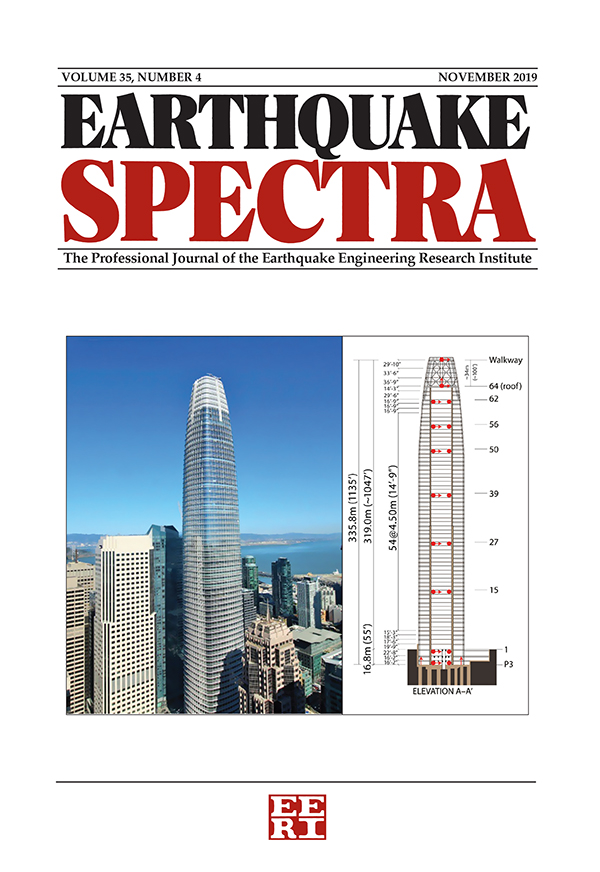最小成本路径分析是一种客观、自动的方法,用于确定概率断层位移危险分析的主要断层轨迹
IF 3.7
2区 工程技术
Q2 ENGINEERING, CIVIL
引用次数: 0
摘要
断层位移危险概率分析(PFDHA)的一个主要目标是对已确定的活动断层沿线和跨断层位移进行定量分析,因为这些位移会对附近的基础设施,如道路、桥梁、管道和电信设施造成危害。PFDHA 依靠的是利用位移测量数据集开发的经验模型,以及通过实地勘测或遥感从过去的全球地表破裂地震中绘制的地表破裂痕迹图。然而,目前确定主破裂痕迹位置的方法都是主观的,而且由于对绘制的破裂痕迹网络往往十分复杂,存在不同的地质解释,因此缺乏可重复性。这种主观性导致难以以一致的方式汇编和分析来自多个事件的位移测量数据和破裂情况。本研究提供了一种客观、可重复的方法来定义主破裂迹线,该方法可应用于实地数据或遥感数据。本文定义的新方法可用于开发断裂迹线的连通性和几何形状,以用于位移模型的开发,也可用于客观定义输入断层迹线,以评估断层位移危险。本文章由计算机程序翻译,如有差异,请以英文原文为准。
Least cost path analysis as an objective and automatic method to define the main fault trace for probabilistic fault displacement hazard analyses
A main goal of probabilistic fault displacement hazard analysis (PFDHA) is to quantify displacement along and across an identified active fault that poses a hazard to nearby infrastructure such as roads, bridges, pipelines, and telecommunications. PFDHA relies on empirical models developed using data sets of displacement measurements and mapped surface rupture traces compiled from past global surface rupturing earthquakes by field surveys or remote sensing. However, current approaches to determine the location of the main rupture trace are subjective and lack repeatability due to different geological interpretations of the often complex network of mapped rupture traces. This subjectivity makes it difficult to compile and analyze displacement measurements and ruptures from multiple events in a consistent manner. This study provides an objective and repeatable approach to define a main rupture trace that can be applied to either field or remote sensing data. The new approach defined here can be used in developing rupture trace connectivity and geometry for use in displacement model developments and for use in objectively defining the input fault trace for assessing fault displacement hazard.
求助全文
通过发布文献求助,成功后即可免费获取论文全文。
去求助
来源期刊

Earthquake Spectra
工程技术-工程:地质
CiteScore
8.40
自引率
12.00%
发文量
88
审稿时长
6-12 weeks
期刊介绍:
Earthquake Spectra, the professional peer-reviewed journal of the Earthquake Engineering Research Institute (EERI), serves as the publication of record for the development of earthquake engineering practice, earthquake codes and regulations, earthquake public policy, and earthquake investigation reports. The journal is published quarterly in both printed and online editions in February, May, August, and November, with additional special edition issues.
EERI established Earthquake Spectra with the purpose of improving the practice of earthquake hazards mitigation, preparedness, and recovery — serving the informational needs of the diverse professionals engaged in earthquake risk reduction: civil, geotechnical, mechanical, and structural engineers; geologists, seismologists, and other earth scientists; architects and city planners; public officials; social scientists; and researchers.
 求助内容:
求助内容: 应助结果提醒方式:
应助结果提醒方式:


